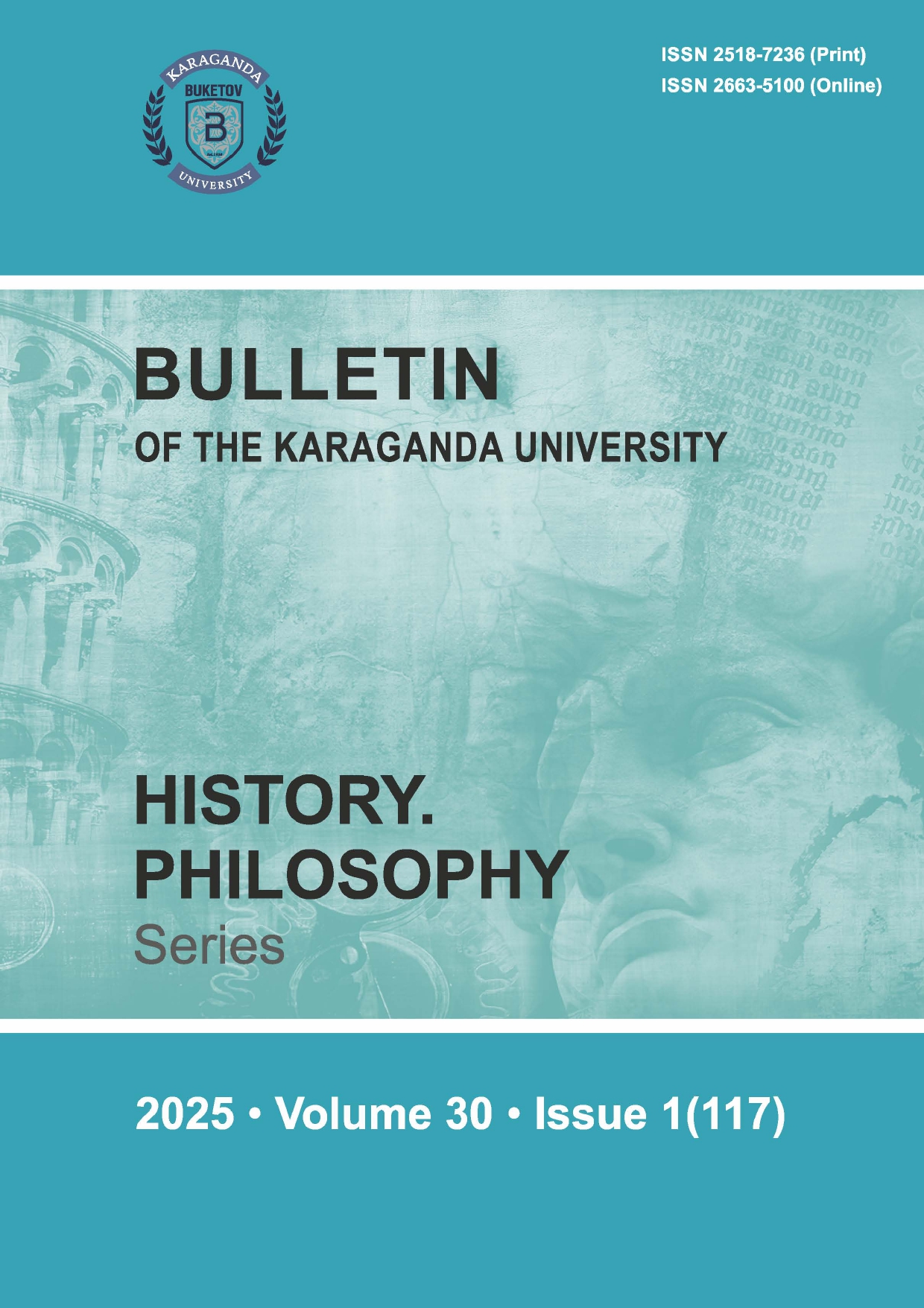Philosophy of “qily zaman”: social change and human values
DOI:
https://doi.org/10.31489/2025hph1/330-341Keywords:
time, change, colonialism, history, struggle, values, meaning of life, destiny, future, uncertaintyAbstract
The article aims to conduct an in-depth exploration of the significance of the concept of “Qilyzaman” (“difficult times”) in Kazakh philosophy and a comprehensive analysis of its impact onhuman worldview and values during periods of complex historical changes. In the traditionalunderstanding of the Kazakh people, “zaman” is characterized by changeability and instability,and the ability to comprehend it plays an important role in determining future times. One suchchallenging period, which has held a special place in the historical consciousness of the Kazakhpeople, is the era of “qily zaman”. This work examines the impact of social, political, and culturalchanges brought about by “qily zaman” on human consciousness and values. To analyze themeaning of the philosophy of “qily zaman” in a specific historical context, the national liberationuprising of 1916 in Kazakh lands, which has remained in the people’s memory as “qily zaman”, isconsidered. The character of the uprising is analyzed based on M. Auezov’s historical novel “Qilyzaman”. This work examines the people’s pursuit of freedom, the revival of faith in the future, therenewal of national consciousness, and the rethinking of the meaning of life and perspectives onthe future. In complex historical conditions, the philosophy of “qily zaman” is revealed as anaspiration to reevaluate the values of human life.




